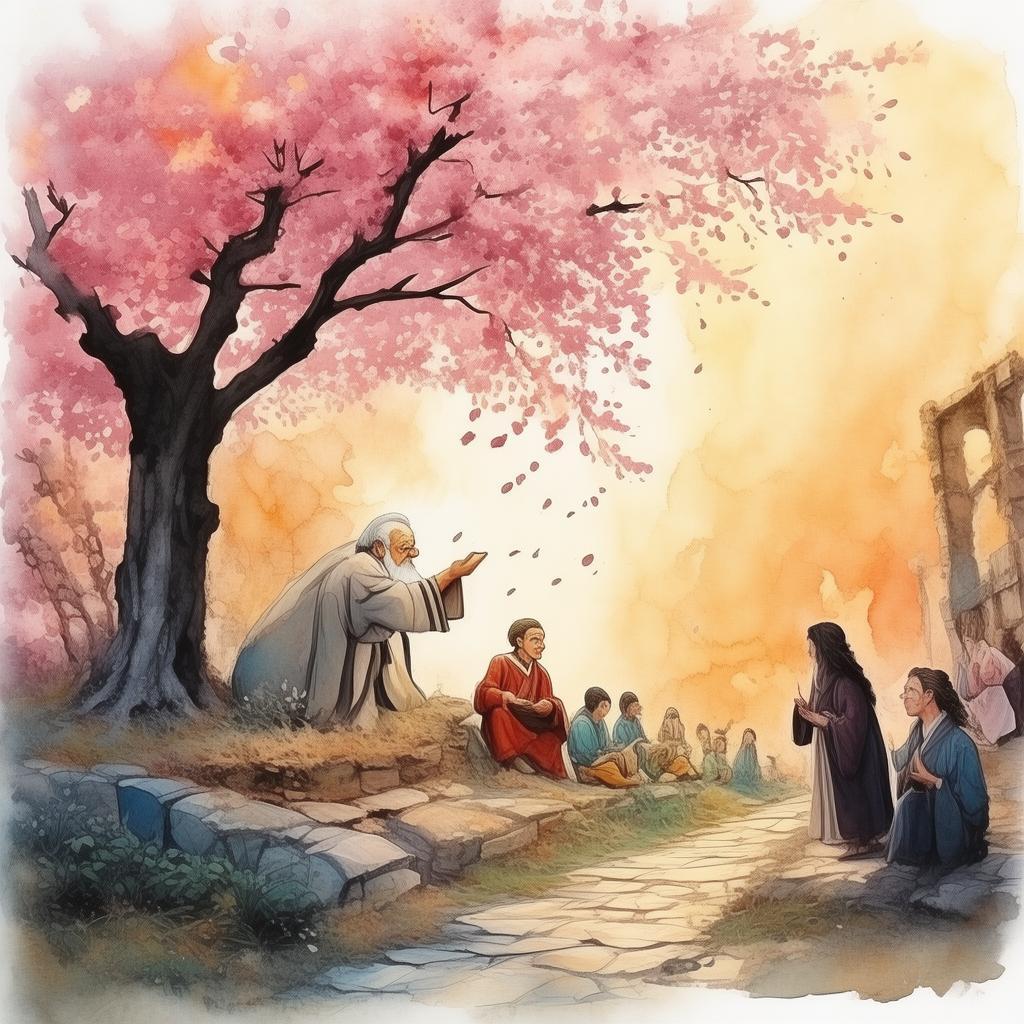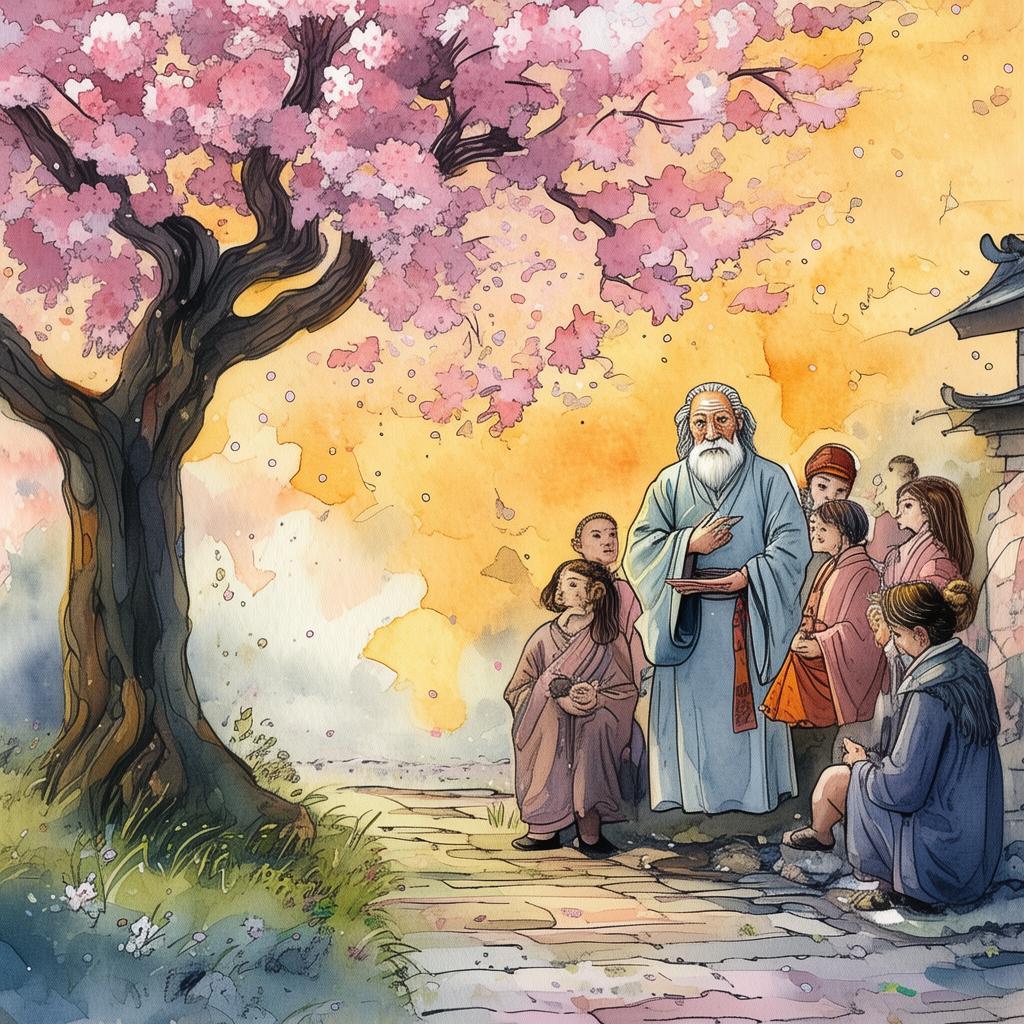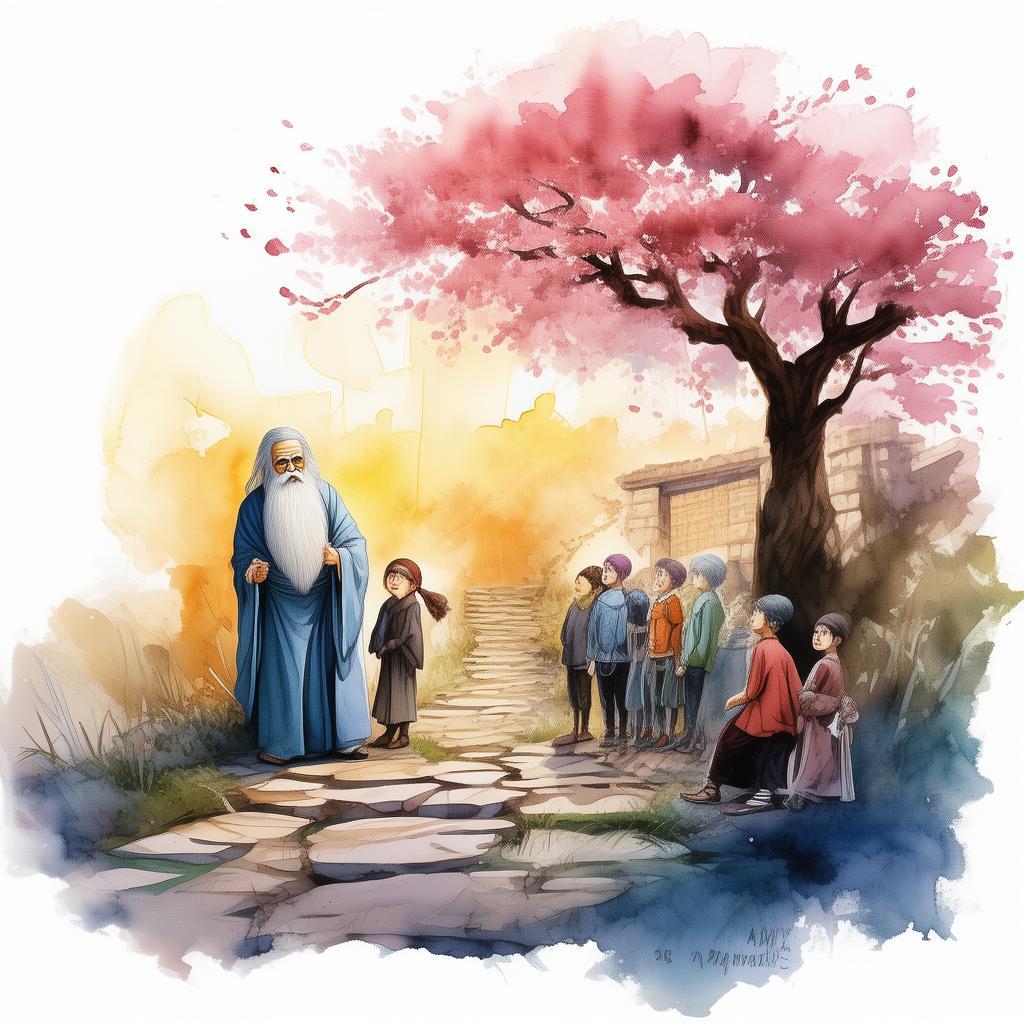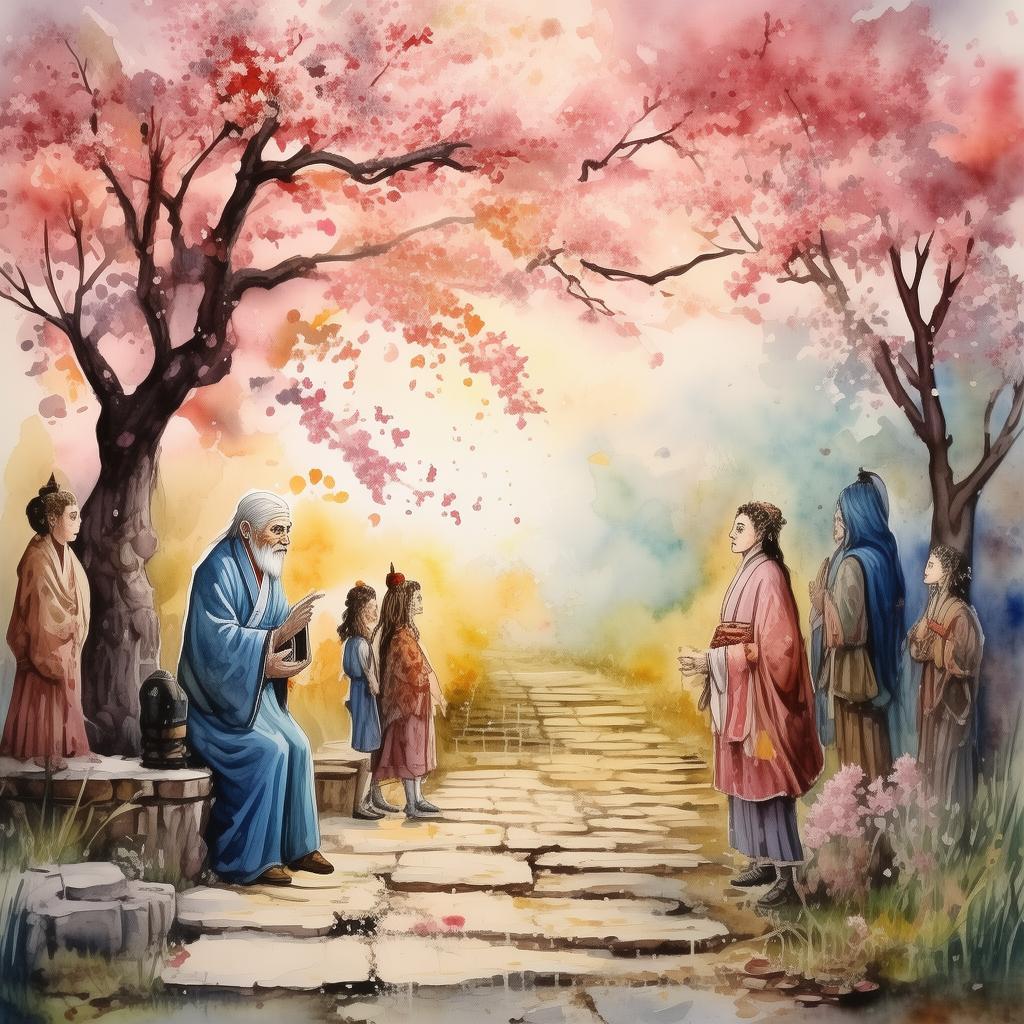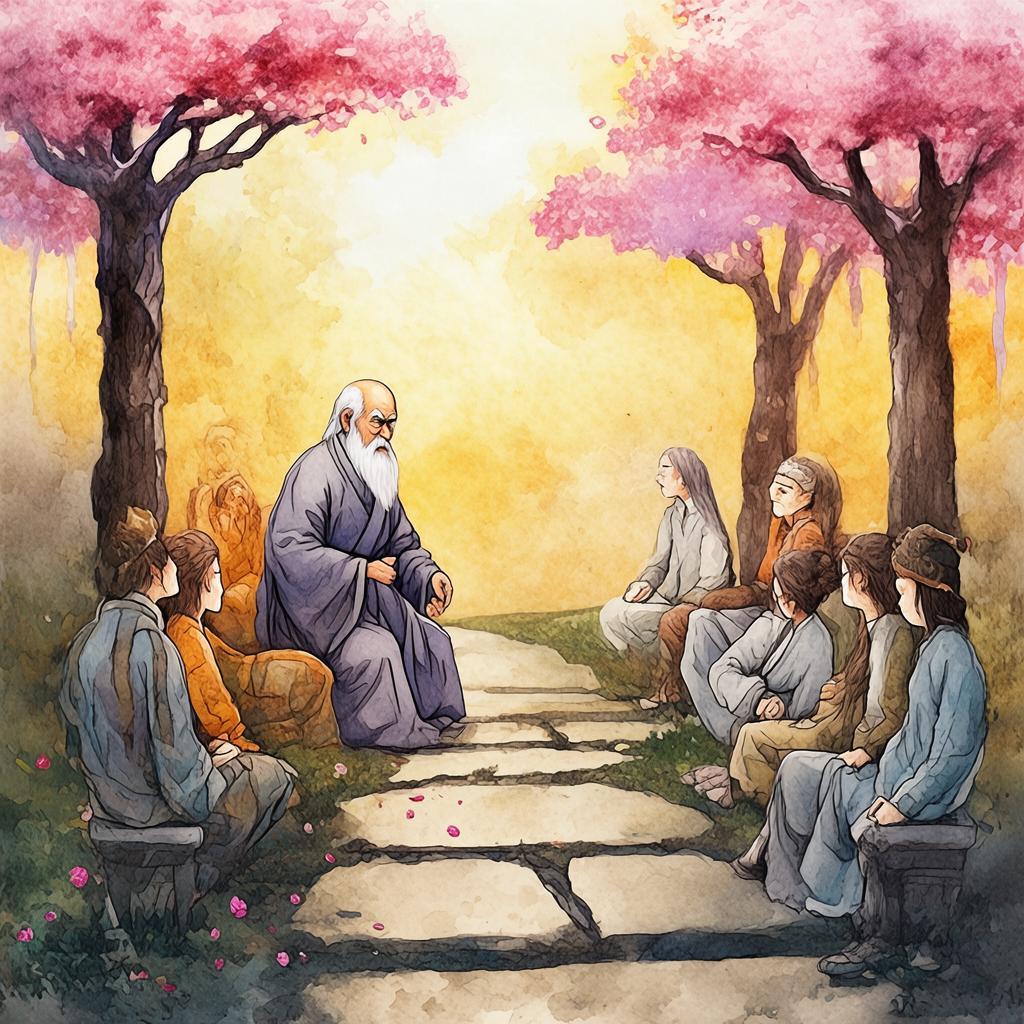The Orphan's Serenade: A Melody of Hope in the Dead of Night
In the heart of a desolate city, where the night was as cold as the bones of the forgotten, there lived an orphan named Liang. She was the child of a tragic past, a nameless soul in a world that offered little solace. The streets were her home, the shadows her companions. Yet, within her, there was a fire that refused to be extinguished—a fire of hope that flickered even in the darkest of nights.
Liang's life was a relentless struggle. She scavenged for food, dodged the city's dangers, and sought refuge in the quiet corners of the old, abandoned music hall that stood at the edge of the city. The music hall was a relic of a bygone era, its grandiose facade a stark contrast to the squalor of the surrounding slums. It was there that Liang found solace, the only place where she felt at peace.
One evening, as the moon hung low and the stars seemed to weep their light upon the earth, Liang stumbled upon a hidden compartment in the music hall. Inside, she found an old, dusty violin and a sheet of music. The music was unlike any she had ever seen, its notes filled with a strange, haunting beauty. Intrigued and desperate for a moment of peace, Liang picked up the violin and began to play. The melody that emerged was unlike anything she had ever heard—it was a serenade, a melody of hope in the dead of night.
As she played, Liang felt a strange connection to the music. It seemed to speak to her, to offer her a promise of something more. She realized that this melody was not just a piece of music; it was a lifeline, a beacon of hope in the vast ocean of despair that surrounded her. With each note, Liang felt a strength growing within her, a strength that gave her the courage to face the challenges that lay ahead.
Days turned into weeks, and Liang's life slowly began to change. She used the melody to inspire herself, to push through the pain and the suffering. She began to see the world through a different lens, one that was filled with possibility rather than despair. The music hall became her sanctuary, a place where she could escape the harsh realities of her life and find solace in the beauty of the melody.
One night, as Liang played the violin, she noticed a figure standing in the doorway of the music hall. It was an old man, his face lined with years of sorrow and hardship. He listened to the music with rapt attention, his eyes reflecting a deep sense of recognition. When Liang finished playing, the old man approached her and said, "You play with a soul that has been touched by something extraordinary. The melody you play is not just music; it is a message, a call to action."
Liang was confused but intrigued. The old man explained that the melody was a hidden message, a song that had been passed down through generations. It was a song of hope, a song that had the power to change the world. The old man told Liang that she was the chosen one, the one who would carry the melody forward and use it to inspire others.
With this newfound purpose, Liang's life took a turn. She used the melody to reach out to others, to offer them hope and strength. She played in the streets, in the marketplaces, and even in the slums. The music began to spread, touching the hearts of those who heard it. It became a symbol of resilience, a reminder that even in the darkest of times, there was always a glimmer of hope.
One evening, as Liang played in the heart of the city, she noticed a crowd gathering around her. The old man was there, as were many others who had been touched by the melody. Liang realized that the music had become more than just a message; it had become a movement, a force for change.
As she played, the melody reached a crescendo, and Liang felt a surge of energy course through her. The music filled the air, resonating with the very essence of the city. In that moment, Liang knew that her life had changed forever. She was no longer just an orphan; she was a beacon of hope, a symbol of the resilience of the human spirit.
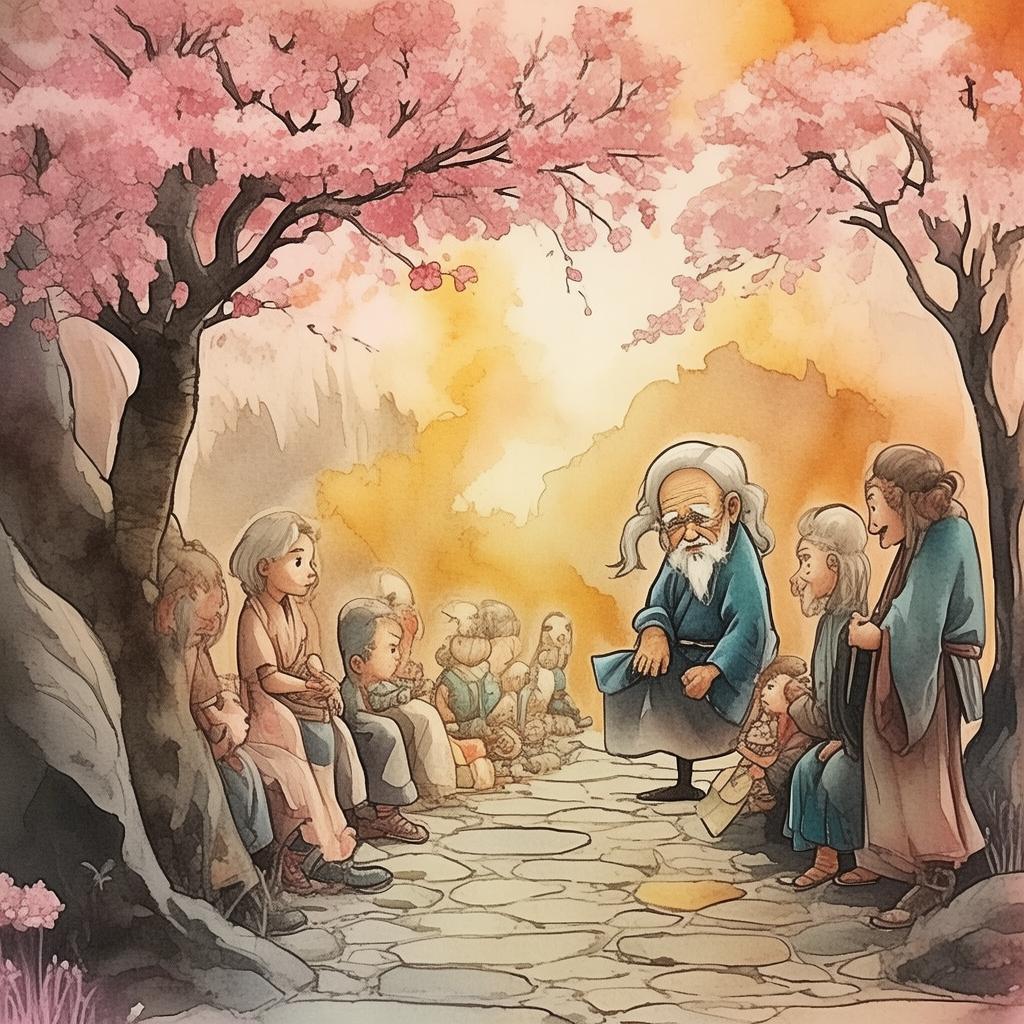
The old man approached her again, his eyes filled with tears of joy. "You have done what no one else could have done," he said. "You have brought the melody to life, and now it will never be forgotten."
Liang looked out at the crowd, her heart swelling with pride and gratitude. She knew that her journey was far from over, but she also knew that she was no longer alone. The melody had given her a purpose, a reason to fight, and a hope for a better future.
And so, as the night deepened and the stars continued to weep their light upon the earth, Liang played her violin once more. The melody of hope in the dead of night echoed through the city, a reminder that even in the darkest of times, there was always a glimmer of light.
✨ Original Statement ✨
All articles published on this website (including but not limited to text, images, videos, and other content) are original or authorized for reposting and are protected by relevant laws. Without the explicit written permission of this website, no individual or organization may copy, modify, repost, or use the content for commercial purposes.
If you need to quote or cooperate, please contact this site for authorization. We reserve the right to pursue legal responsibility for any unauthorized use.
Hereby declared.
